By all counts, there will be more of us outdoors this coming summer. And anyone who visited public lands last summer, particularly in the West, can testify, anecdotally of course, that more people were out and about in 2020 than in years past, thanks largely to the ongoing coronavirus pandemic and the desire to find safe recreation alternatives away from crowds. Experts in the camping and RV fields are quick to point out that RV sales were up markedly in 2020, and that the trend is continuing in 2021.
While it might be heartening to learn that the great outdoors is enjoying a renaissance of late, those of us who visit the outdoors to camp, fish, hike or ride are rightfully skeptical that there’s enough room for everyone who wants to be outside, and even more convinced that folks new to our chosen outdoor pursuits don’t understand the unspoken rules and etiquette surrounding them.
After witnessing some of the damage inflicted on public lands — our shared national resource — by campers last year who were either ignorant of their responsibilities or purposely misbehaving, I’m wary that a continued influx of visitors will result in even more damage, and, frankly, the reduction of camping opportunity for those of us who have enjoyed the activity long before COVID-19 inspired a host of new participants to buy that first tent or that first travel trailer.
To be frank, if what I saw last summer is going to repeat itself this summer, our federal land-management agencies will be faced with some tough decisions, particularly when it comes to dispersed camping on public lands.
Here in the West, on our vast swaths of Forest Service and Bureau of Land Management acreage, dispersed camping is allowed, and in most cases, it’s free and available on a first-come, first-served basis. Some camping locations are just wide spots in the road, and others are located off of spur roads and trails leading into more remote areas. For those of us who have been camping on public lands for years, there are unwritten rules to ensuring that we’ll be able to continue visiting these special places for years to come. And the rules don’t just have to do with how we treat the land, but also how we treat our fellow campers and others who use public land for recreation.
I think it’s time the unwritten rules earn some ink, and that advocates for public lands recreation speak up and earnestly help police their pastimes for fear of having them curtailed. And for those new to dispersed camping, consider the following before you hitch up the new RV and head for the hills:
Leave it cleaner than you found it
This one’s simple and should be top-of-mind for anyone visiting public lands, whether it be for an afternoon, a long weekend or a couple of weeks at a time. When you visit your chosen campsite or parking area, take care to clean up after yourself. If you find any garbage left behind by the last visitor, for God’s sake pick it up. When you leave, no matter how long you stay, the site should be cleaner and in better shape than when you found it. Don’t leave garbage in the firepit. Clean up after your dogs or stock (or yourselves!). In a perfect world, the next visitor shouldn’t be able to tell you were there before them.
Be considerate of your camping neighbors
In a lot of instances, dispersed camping doesn’t necessarily mean you’ll be completely isolated—you might have neighbors within both earshot and eyeshot. Remember that when, say, you’re gathered around the campfire after midnight enjoying some cocktails or playing music. Using a generator? If others are camping nearby, don’t run it all night long — recharge your batteries during the day, and run your equipment off of house power once the sun goes down. If you camp with an ATV or a side-by-side ORV, take care not to run the vehicles through or even near other campsites. Are you a target-shooter? Remember that not everyone is as comfortable around firearms as you might be — make sure you’re targets are well away from other campsites and that you know your backdrop and aren’t putting anyone at risk. Common courtesy should be your guiding light when you’re camping for free on lands owned by every single American.
Don’t “pioneer” new sites and trails
Often, when campsites are occupied, people are tempted to simply create new ones. This often means driving your rig across meadows where no roads or trails currently exist in order to reach a spot where the RV or the tent might fit. If I’ve learned one thing from camping for decades on public lands, it’s this: once a new road or trail is started, it will always be a road or trail. At one of my favorite campsites that’s fairly close to home, someone with an ORV decided they wanted to ride their vehicle to a popular swimming hole last summer. What once was a single track hiking trail became a two-track ATV road. This happened in a matter of weeks. Don’t be the person who can’t be bothered to walk a few hundred yards. Stay on designated trails and camp in sites that don’t require you to pioneer a new route. If the damage becomes too great, the Forest Service or the BLM will be forced to step in — this could mean that all of use could lose access to special places because a single user was too lazy to walk or to find another site.
Be respectful of other recreators
Again, from the common courtesy department, consider the impact of your activity on others. If you ride ORVs and the trail leads through a creek crossing, think about the impact you might have on anglers in the creek by simply charging through the creek at full speed as opposed to slowing down and driving carefully through the water. If you ride an ATV and it’s hunting season, remember that peace and quiet are important to those seeking game in the field. If you’re an angler, don’t leave line clippings or bait containers behind. This may sound silly, but one of the most annoying things I often come across while fishing is the seemingly innocuous rock cairn carefully crafted by other visitors using streamside rocks. First, the rocks are often lifted from the stream bottom and can impact overall fish habitat. Second, I have no desire to come across a cairn left by someone who was there before me and just had to prove it. I take great pleasure in knocking cairns over and dispersing the rocks whenever I find them. Which brings us to the next topic.
Nobody needs to know you were here or who you love
Don’t carve your initials in the bark of an aspen or a birch tree with a pocket knife, and don’t proclaim your undying love for your significant other by sketching a heart and your names into the wood. It’s unnecessary and spoils the unspoiled, not to mention the experience of others who might visit after you.
Firewood etiquette
Don’t rob every nearby pine tree of low-hanging branches because you didn’t bring enough firewood. And, unless it’s specifically allowed, don’t gather firewood — in some national parks, doing so is simply not allowed. I camp in a local national forest that allows only dead, fallen timber or completely dead standing trees to be cut for firewood. It should stand to reason that cutting a live tree for firewood is not allowed. The best solution to finding firewood when you’re camping on public lands is to know and understand the rules put in place by the managing agency, and to follow them. Whenever possible, bring firewood with you. And, later in the year, when the forest might be dry and fire danger is higher, don’t have a campfire. There are other alternatives to wood-burning fires — propane fire pits are inexpensive and much less likely to cause issues when fire danger is high. And, by all means, don’t cut down stock posts or sign posts to burn in your fire pit. Yes, I’ve seen it done. And no, I can’t think of anything more selfish or destructive to our shared resource.
Access can vary at different times of the year
In the spring, or during “mud season,” as we call here in the Rockies, some roads and trails are better off left alone. The access spur into one of my favorite campsites is no longer a simple two-track road. Some years back, an ATV rider decided he or she was going to take the road, even though it was too muddy to appropriately navigate. The “road” became a muddy mess of incised ruts that became impassable. The solution for others coming after the sole rider who caused the damage? Go around the ruts, of course. Now, the access into the campsite is two or three times as wide as the initial road, and the damage to the landscape is irreparable. I won’t be surprised when the Forest Service, rather than invest sparse funds in repairs, chooses instead to close off access to the campsite altogether. All because of one selfish rider.
Communicate with other campers
During the busy summer months, simple communication can go a long way. If you show up and your preferred site is occupied, don’t crowd in and camp next to those who beat you to it. If there aren’t any other choices, don’t be afraid to ask the existing campers if they mind if you pitch your tent or park you camper in a neighboring site. And existing campers, who got to the site first, should feel comfortable suggesting another alternative to those folks coming after them. Our public lands are vast. Just because your favorite site is taken doesn’t mean others aren’t available.
Remember, there’s still a pandemic going on
You may not feel the need to incorporate social distancing into your outdoor routine, and you may think it’s silly to wear a mask outside. But, when you’re camping in close proximity to others, remember that not everyone feels the same way. Don’t get into people’s personal bubbles and don’t foist yourself on others who might be camping to get away from the crowds. Again … be courteous and considerate. Check your personal politics at the door. It’s not that hard to try and be kind to others.
And that, of course, is the overarching theme when it comes to dispersed camping on public lands. There’s absolutely no reason — other than sheer greed and selfishness — we can’t try to enjoy our experience while also working to ensure others have the same opportunity. We may be a politically divided country, but courtesy and common sense should trump our personal desires to drive across a pristine meadow, blast our music into the night or go “mudding” in a place others enjoy for different reasons.
It’s easy to see why those of us who have camped for years and have tried to respect the land and others who use it are afraid of what’s to come as more people discover the outdoors and plan visits to places we love. If you’re new to camping or spending time outdoors on public lands, please understand that these places are precious to many of us, and, in time, I hope they’re precious to you, too. That means you should treat them like they belong to you. Because they do.



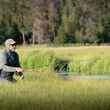

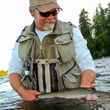

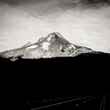



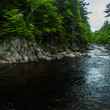
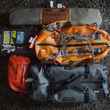



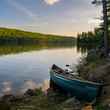




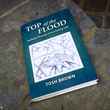



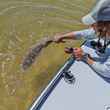
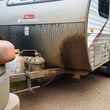


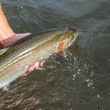
Comments
Gary Felsman replied on Permalink
Just a reminder. Though the article says bring your own firewood. That is a big NO NO when is comes to protecting these special places. Bringing you own firewood can transport unwanted pest to a given area which could have a major impact on the places you visit. Either buy wood locally, use another method of having a campfire and follow the rules of the managing agency..
Gregg replied on Permalink
I am surprised that you did not mention the number 1 problem I have found in the woods. That is going #2. I am disgusted and sad at how many do their thing and leave it all right there, as if no one will ever come this way again. We all do it. We should all do it right. This includes anglers. So I am surprised this is not one of the big mentions. Especially for dispersed camping.
Edward Michaels replied on Permalink
This is a very well written piece with proper rules of the road for eager campers. If everyone followed these simple, common sense rules, everyone would enjoy a better experience.
Shannon McCallum replied on Permalink
We leave, enough firewood for the next camper to have a fire the first night.
Pages